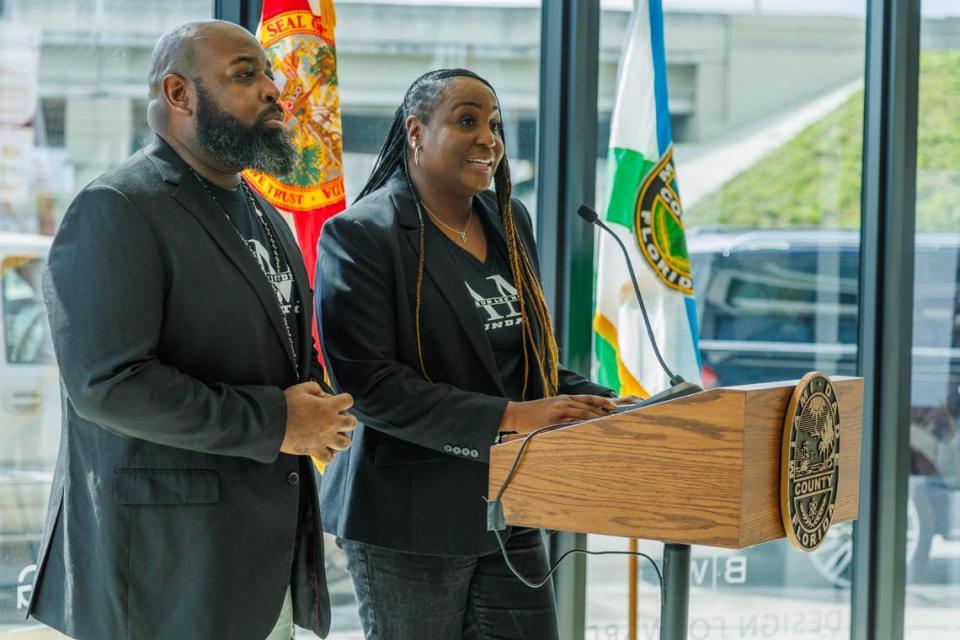‘A seminal moment.’ Levine Cava unveils historical marker for Arthur McDuffie
It should be a day Miami never forgets.
At least six Dade County Public Safety officers savagely beat Arthur McDuffie into a coma near the corner of North Miami Avenue and Northeast 38th Street in the early hours of that Monday morning on Dec. 17, 1979. Though McDuffie would die four days later, justice was never truly served as the acquittal of the four officers involved would spark the McDuffie Riots.
For nearly 45 years, only a stretch of Northwest 17th Avenue named after McDuffie enshrined his memory. That changed Saturday morning when Miami-Dade Mayor Daniella Levine Cava and County Commissioner Keon Hardemon unveiled a historical marker dedicated to McDuffie on the very same corner that forever changed the course of Miami history.
“It was a seminal moment,” Levine Cava told the Miami Herald, later adding that “we have to never forget so that we never go back and keep going because we have not achieved the equality in our society that has been promised.”
Various members of the McDuffie family, including his two youngest children Dewana and Marc McDuffie, who were 14 and 18 months, respectively, when their father was killed, joined Levine Cava and Hardemon at the dedication ceremony. The siblings were emotional yet showed poise as they spoke to the small crowd gathered in honor of their father.
“At the time, we did not understand what the death of my father and the acquittal of the police officers involved did for the city of Miami and how it shaped the community we now live in,” Dewana said to the audience, wearing a black shirt with her father’s eponymous foundation inscribed on the front. In a subsequent interview with the Herald, she described her plans to revamp the foundation to help other families impacted by police killings.
“There’s more work to do,” she said.

Part of what made McDuffie’s death so significant was not only his stature in the community – he was the father of three, a U.S. Marine Corps lance corporal and a member of the Booker T. Washington High marching band – but the way in which the officers attacked him and then subsequently tried to cover up the incident to make it look like an motorcycle accident. At the trial, which was moved from Miami to Tampa and featured an all-white jury, the medical examiner said McDuffie’s skull had been smashed “like an egg.”
“We still live with the pain of the death of Arthur McDuffie,” Hardemon told the audience, comparing the killing to a lynching.
The ensuing riots were essentially a cry for help from communities – most protests happened in the primarily Black neighborhoods of Overtown, Liberty City and Brownsville – that felt forgotten. When the flames died down three days after the uprising began, at least 18 people were dead, 400 were injured and property damage exceeded more than $100 million. And while federal funds were dispersed to help the neighborhoods rebuild, most of the money never made it to the community.
“We’ve not recovered,” longtime Brownsville resident Neal Adams, Jr. told the Herald in 2015. “A whole class of business people is basically gone and dead.”
The historical marker comes as Florida’s education system deals with the amorphous nature of Gov. Ron DeSantis’ policies. In the past year alone, books have been banned, permission slips have been required for students to learn about Black history and state curriculum standards have been changed to reflect that enslaved Africans benefited from their bondage.
“People need to not be afraid to tell the truth,” Levine Cava said. “People need to not be afraid to teach history. And not just teach it but understand it.”

